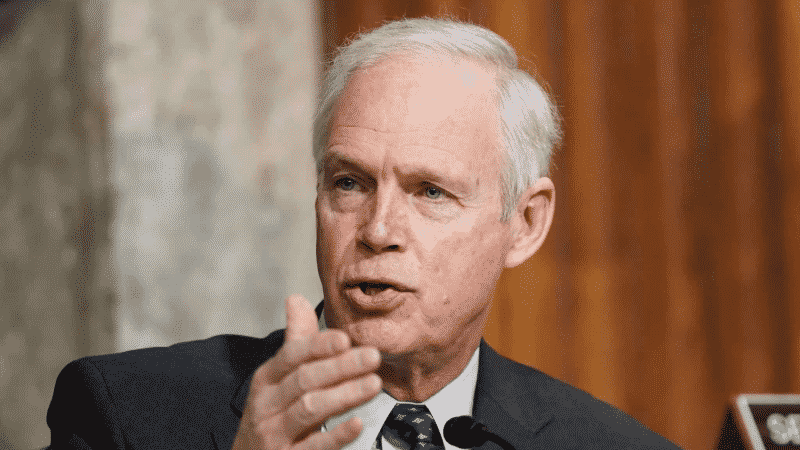Sen. Ron Johnson (R-Wisc.) is suggesting he may have felt threatened by those who stormed the U.S. Capitol on Jan. 6 if they were Black Lives Matter protesters and far-left “antifa” activists.
Speaking on “The Joe Pags Show” podcast, Johnson touched on the Capitol riot that occurred earlier this year on the day Congress was certifying President Joe Biden’s election win.
“I’ve also been criticized because I made the comment on Jan. 6 – I never felt threatened, because I didn’t,” he said on Thursday.
The Republican lawmaker continued, “Even though those thousands of people were marching on the Capitol were trying to pressure people like me to vote the way they wanted me to vote, I knew those were people that love this country, that truly respect law enforcement, would never do anything to break the law, so I wasn’t concerned.”
He added:
“Had the tables been turned, Joe, this could mean trouble. Had the tables been turned and President Trump won the election and those were tens of thousands of Black Lives Matter and antifa protesters, I might have been a little concerned.”
“Wow,” radio talk show host Joe Pags responded, adding, “That’s a big statement.”
Listen to the podcast below (around 1:04:00):
The senator came under criticism for those remarks, including from Jessica Floyd, president of Democratic super PAC American Bridge 21st Century, who said, “Senator Johnson’s remarks are racist and unacceptable. There is nothing patriotic about storming the Capitol to attempt to overturn an election and murder elected officials,” according to The Hill.
“Apparently for Ron Johnson, simply being Black is a bigger offense than launching a violent insurrection,” Floyd added. “Ron Johnson is an embarrassment to the United States Senate and the state of Wisconsin. He needs to resign immediately.”
Johnson previously found himself making headlines after he read a piece from The Federalist during a Senate hearing where he raised the claims “provocateurs” and “fake Trump protesters” planned the insurrection on Jan. 6.
He later told The New York Times in defense of raising those claims, “I think it’s important, if we’re going to really get the whole truth, to understand exactly what happened, we need to look at different vantage points, different perspectives.”
“It might be a flawed part of the evidence, but why exclude it? Just because it doesn’t necessarily tie into whatever narrative somebody else wants to tell about the day? I’m not interested in the narratives, I’m interested in the truth,” Johnson later added.
























